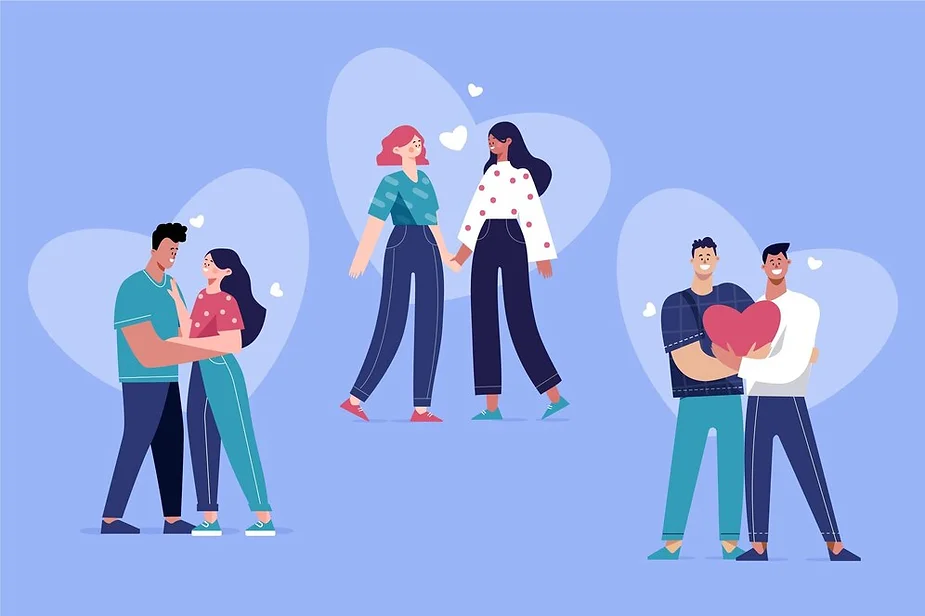Green flag meaning in relationship: The Definitive Guide to Recognizing a Healthy Partnership
Introduction
In today’s dating landscape, discussions about relationships often focus on red flags—warning signs of toxicity, manipulation, or incompatibility. While identifying red flags is crucial for avoiding harmful relationships, it’s equally important to recognize green flag meaning in relationship —the positive behaviors and traits that indicate a healthy, loving, and sustainable partnership.
Green flag meaning in relationshipare the foundation of a strong relationship. They help you determine whether your partner is emotionally mature, trustworthy, and genuinely invested in your well-being. Unlike fleeting romantic gestures, green flags reflect long-term compatibility, mutual respect, and emotional security.
In this in-depth guide, we’ll explore:
- What green flags really mean
- The psychology behind healthy relationships
- 10 key green flags to look for
- How to nurture these positive traits in your partnership
- Why green flags matter more than “spark” or chemistry
By the end, you’ll have a clear understanding of what makes a relationship truly thrive—beyond just attraction and initial excitement.
What Are Green Flags in a Relationship?
Green flags are consistent, positive behaviors that signal emotional intelligence, respect, and genuine care in a relationship. They indicate that a partner is:
- Secure in themselves (not overly jealous or needy)
- Committed to mutual growth (not just their own needs)
- Capable of healthy conflict resolution (no silent treatment or aggression)
While red flags warn you to walk away, green flags reassure you that you’re with someone who is emotionally available, trustworthy, and capable of long-term love.
The Psychology Behind Green Flags
Research in relationship psychology (e.g., John Gottman’s studies on marital stability) shows that healthy relationships thrive on:
- Emotional attunement (being in sync with each other’s feelings)
- Positive communication (more appreciation than criticism)
- Secure attachment (trust without obsession)
Green flags align with these principles. For example:
- A partner who actively listens (instead of interrupting) fosters emotional safety.
- Someone who takes accountability (instead of blaming) builds trust.
These behaviors create a virtuous cycle where both partners feel valued, leading to deeper intimacy.
10 Essential Green Flags in a Relationship
Let’s dive into the most important green flags, backed by psychology and real-world experience.
1. Open and Honest Communication
Why it matters: Communication is the backbone of any strong relationship.
Signs to look for:
- They share their thoughts openly, without fear of judgment.
- They ask questions to understand you better (e.g., “How did that make you feel?”).
- They don’t use passive-aggressive remarks or silent treatment.
Example: Instead of saying, “You’re always ignoring me,” they say, “I felt hurt when you didn’t reply. Can we talk about it?”
2. Mutual Respect
Why it matters: Without respect, love cannot last.
Signs to look for:
- They respect your boundaries (e.g., not pressuring you into things).
- They value your opinions, even when they disagree.
- They speak kindly about you to others.
Example: If you say, “I need some alone time,” they respond with, “I get it. Let me know when you’re ready to connect.”
3. They Support Your Growth
Why it matters: A good partner wants you to thrive, not just stay the same.
Signs to look for:
- They encourage your goals (career, hobbies, self-improvement).
- They don’t feel threatened by your success.
- They celebrate your wins genuinely.
Example: If you get a promotion, they say, “I’m so proud of you!” instead of, “Now you’ll be busier than ever.”
4. Healthy Conflict Resolution
Why it matters: Fights are inevitable, but toxicity isn’t.
Signs to look for:
- They stay calm during disagreements.
- They focus on solving the issue, not “winning.”
- They apologize when wrong and forgive when you apologize.
Example: Instead of yelling, they say, “I see why you’re upset. How can we fix this together?”
5. Trust and Reliability
Why it matters: Trust is the foundation of security in love.
Signs to look for:
- They don’t hide their phone or lie about small things.
- They follow through on promises.
- You don’t feel anxious when they’re out with friends.
Example: They text, “Running late, but I’ll be there by 8!” and actually show up on time.
6. Emotional Safety
Why it matters: You should feel safe being vulnerable.
Signs to look for:
- You can cry, express fears, or share insecurities without shame.
- They comfort you when you’re upset.
- They don’t mock your feelings.
Example: If you admit a past mistake, they respond with empathy, not judgment.
7. Shared Core Values
Why it matters: Opposites attract, but values must align.
Signs to look for:
- You agree on key life goals (marriage, kids, finances, lifestyle).
- You have similar views on loyalty, honesty, and respect.
Example: If you both value honesty, neither of you will tolerate lying, even about small things.
8. Consistent Effort
Why it matters: Love is a verb, not just a feeling.
Signs to look for:
- They plan dates or surprises.
- They remember small details (e.g., your favorite snack).
- They prioritize quality time, even when busy.
Example: After a long day, they cook your favorite meal just to make you smile.
9. Healthy Independence
Why it matters: Codependency kills relationships.
Signs to look for:
- You both have separate friends and hobbies.
- They don’t rely on you for their happiness.
- You can spend time apart without insecurity.
Example: They say, “Have fun with your friends!” instead of, “Why don’t you ever stay home with me?”
10. They Bring Out the Best in You
Why it matters: A good relationship should elevate you.
Signs to look for:
- You feel more confident and happy with them.
- They inspire you to grow.
- The relationship adds value to your life.
Example: You take up a new hobby or pursue a dream because they believe in you.
How to Nurture Green Flags in Your Relationship
Green flags don’t just happen—they require intentional effort. Here’s how to cultivate them:
- Practice gratitude – Acknowledge your partner’s positive traits.
- Communicate needs clearly – Don’t expect mind-reading.
- Prioritize emotional safety – Avoid contempt, sarcasm, or defensiveness.
Conclusion: Why Green Flags Matter More Than Chemistry
While chemistry and attraction are important, they fade over time. Green flags, however, create lasting love. If your relationship has most of these signs, you’re likely in a healthy, fulfilling partnership.
Reflection Questions:
- Which green flags do you see in your relationship?
- Are there areas where you or your partner can improve?
Share this post with someone who deserves to recognize true love! 💚

